Management
Management books provide tools and frameworks for leading teams, improving operations, and achieving organizational goals.
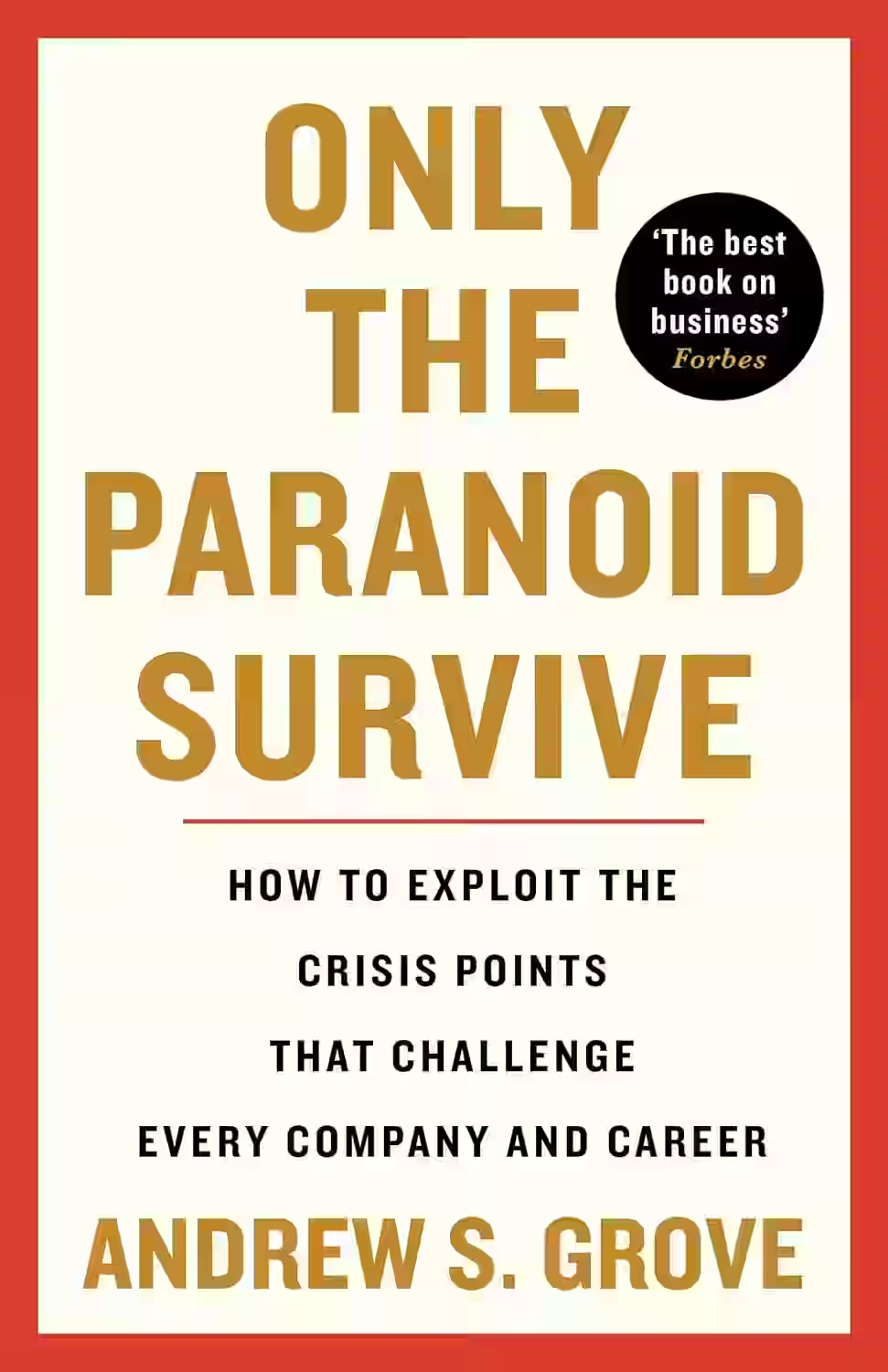
Only the Paranoid Survive
In this business classic, Intel co-founder Andy Grove shares insights into managing “strategic inflection points”—critical moments that can make or break a company. Drawing from his experience leading Intel through seismic shifts in the tech industry, Grove emphasizes the importance of adaptability, vigilance, and courage. His core idea: constant change demands a mindset of healthy paranoia. Companies and leaders must be ready to pivot when conditions shift. Part memoir, part management manual, the book offers practical strategies for staying competitive, fostering innovation, and leading through uncertainty. It remains a must-read for entrepreneurs, executives, and strategic thinkers.
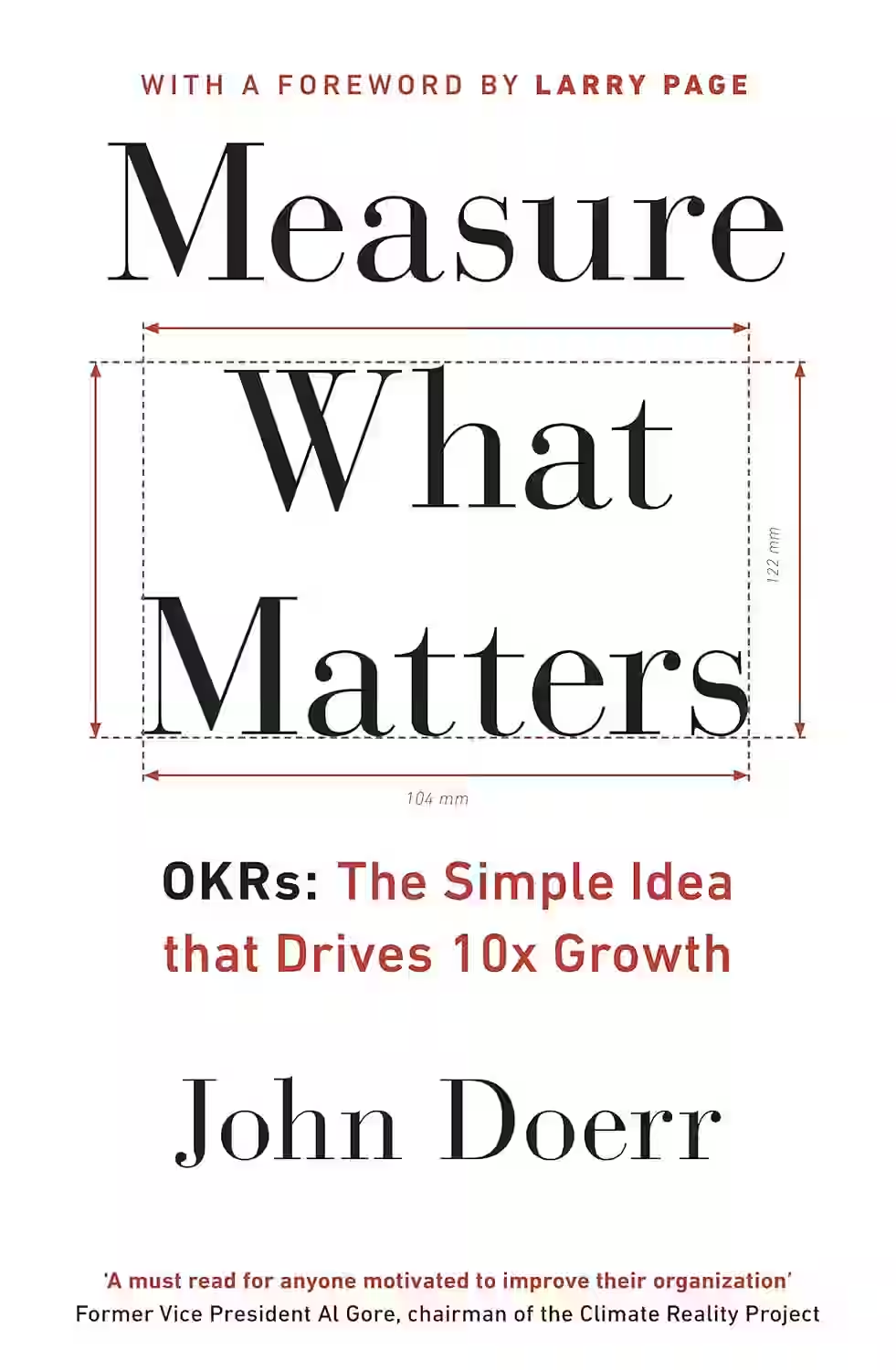
Measure What Matters
by John Doerr
This influential business book introduces the Objectives and Key Results (OKRs) framework, a goal-setting system used by major companies like Google, Intel, and Bono’s ONE campaign. John Doerr, a legendary venture capitalist, outlines how OKRs help organizations focus effort, track progress, and foster alignment and accountability. Through detailed case studies from Google, YouTube, and the Gates Foundation, Doerr shows how this method has transformed productivity and performance. Larry Page has praised the book, saying he wished he had it at the beginning of Google’s journey. “Measure What Matters” is a practical blueprint for building goal-driven, agile organizations.
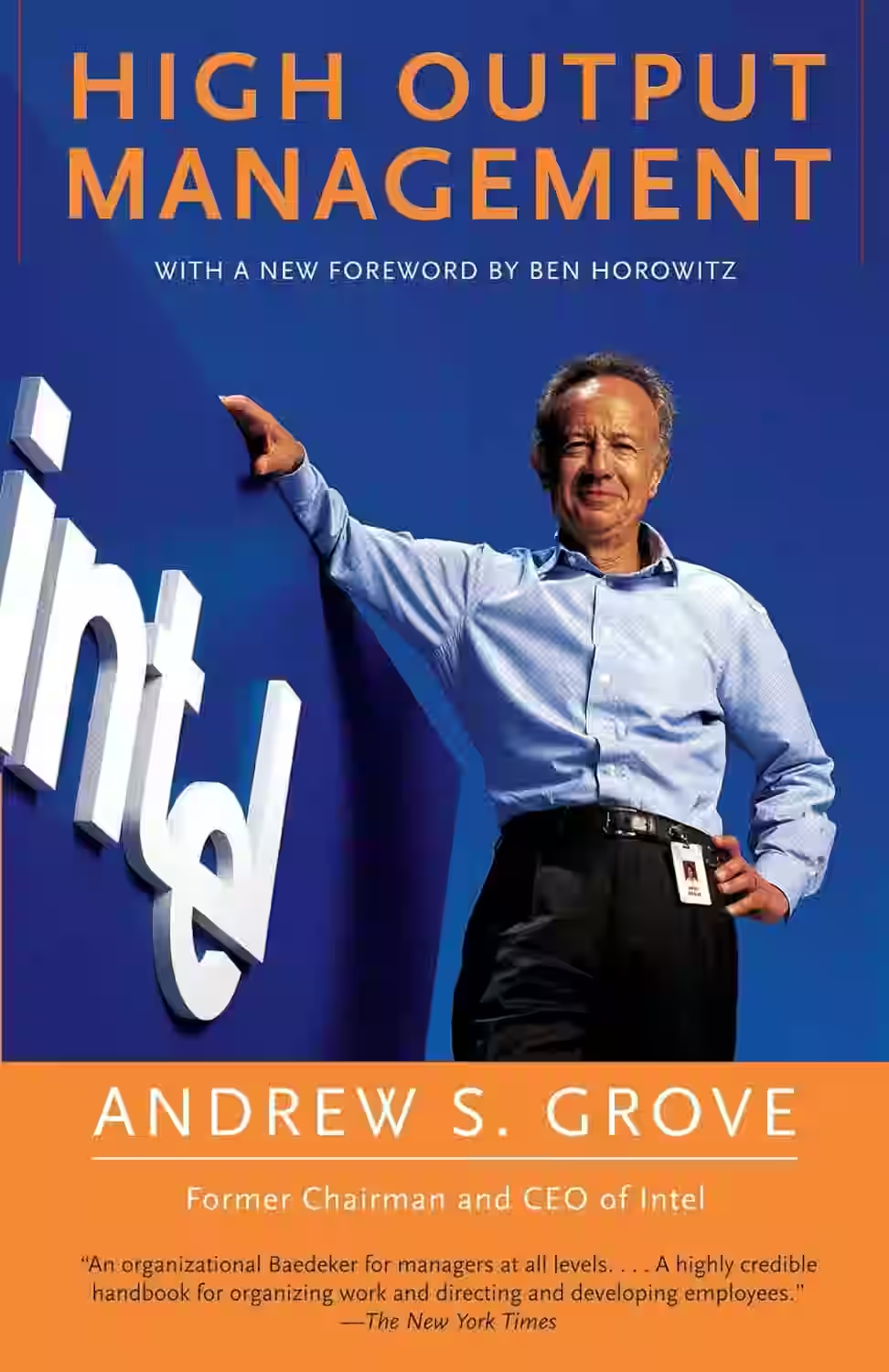
High Output Management
In 'High Output Management' by Andrew S. Grove, the former CEO of Intel shares his insights on effective management techniques. Grove delves into topics like team dynamics, decision-making processes, and how to boost productivity within an organization. He emphasizes the importance of setting clear goals, providing feedback, and fostering a culture of continuous improvement. Through real-world examples and practical advice, Grove offers valuable strategies for both new and experienced managers looking to enhance their leadership skills. This book serves as a timeless guide for understanding the intricacies of management and maximizing team performance.
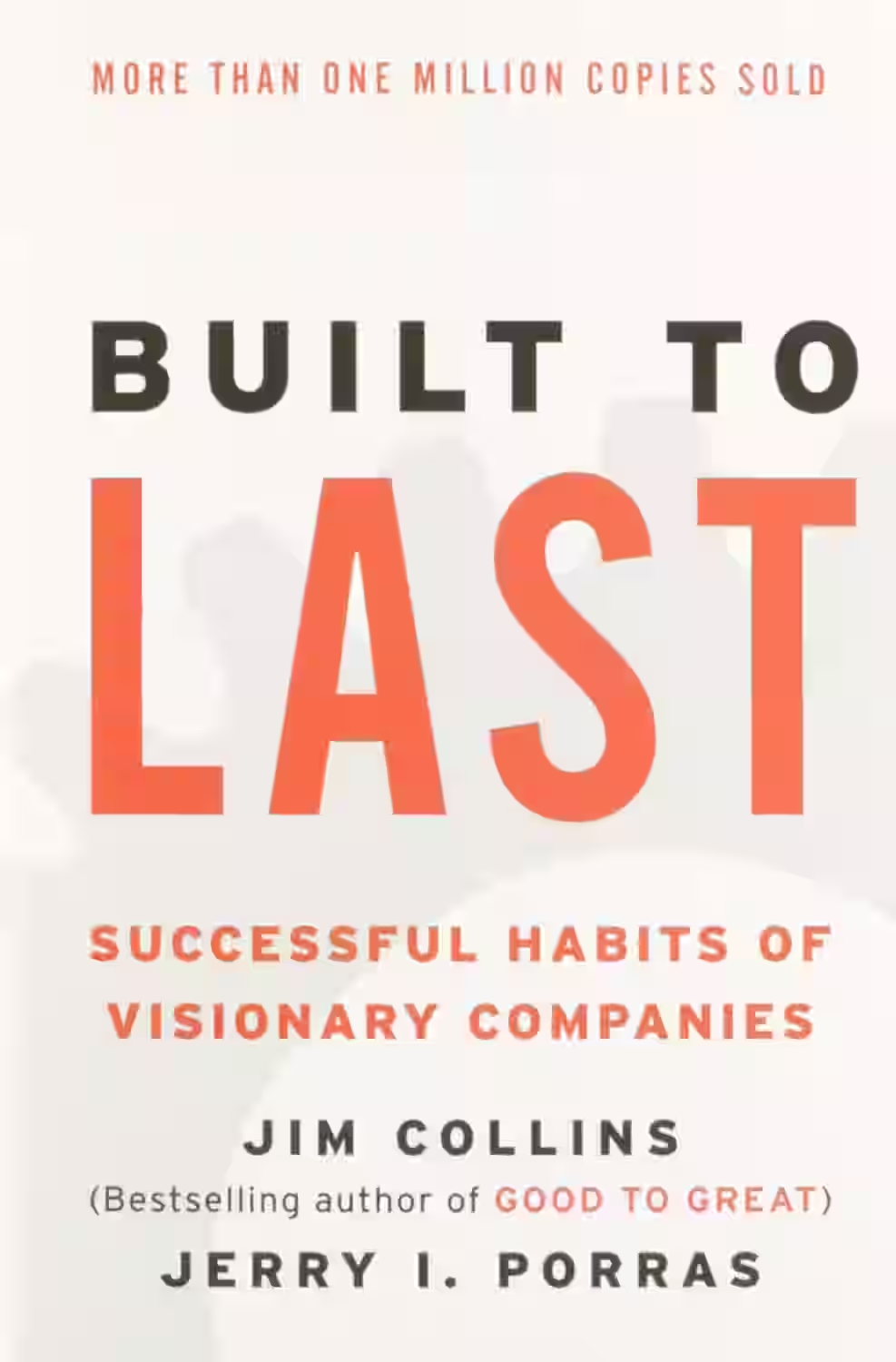
Built to Last
Built to Last explores what makes companies endure over decades, based on a six-year research project studying 18 visionary firms. Collins and Porras identify key traits shared by long-lasting companies, such as core values, bold missions, and a relentless drive for progress. The book challenges the idea that great leadership or market timing is the key to success, instead emphasizing organizational culture and consistency. Concepts like “clock building” versus “time telling” illustrate how lasting companies focus on systems, not individuals. With timeless lessons and real-world examples, Built to Last is a blueprint for sustainable, principle-driven business success.
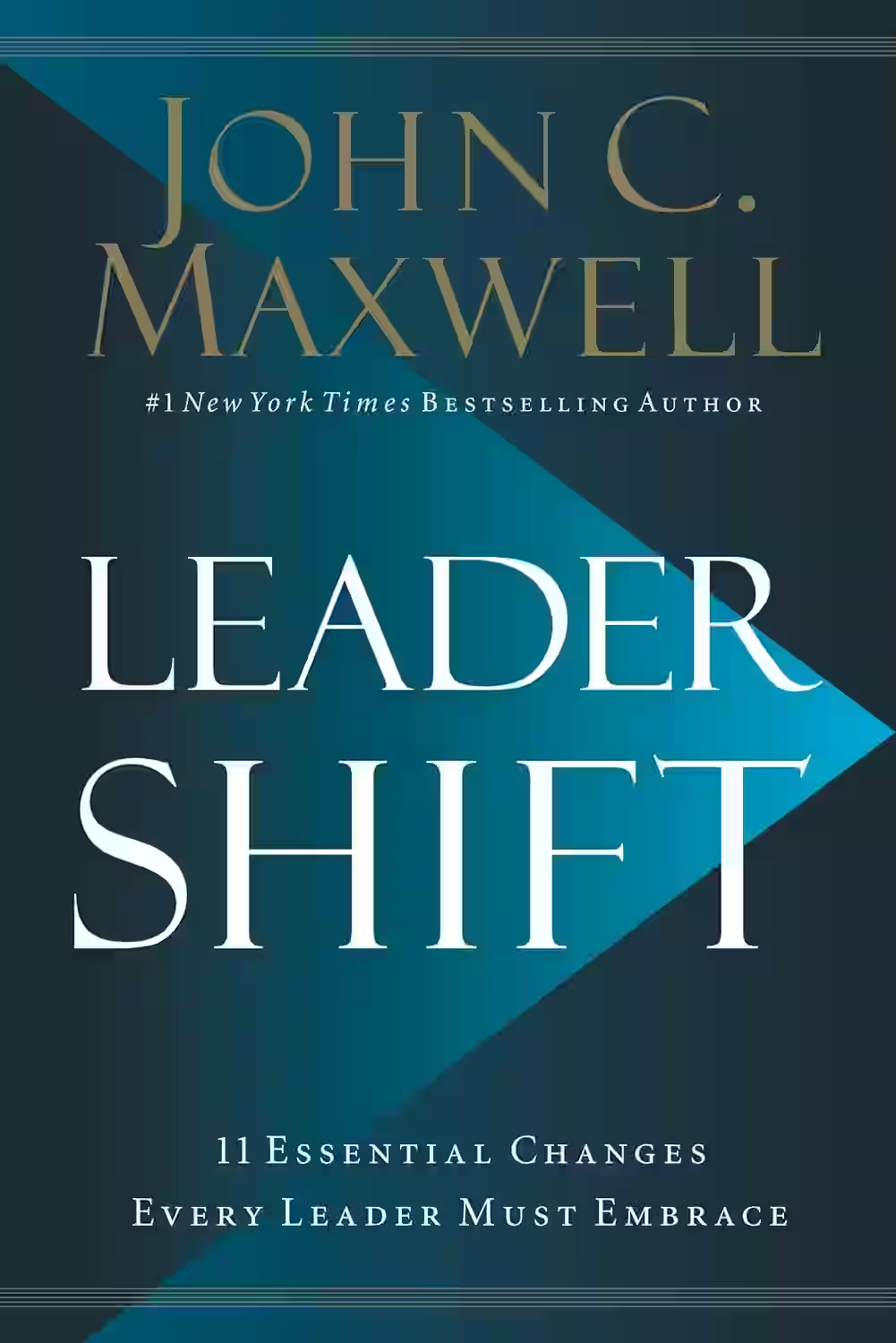
Leadershift: The 11 Essential Changes Every Leader Must Embrace
In 'Leadershift: The 11 Essential Changes Every Leader Must Embrace' by John C. Maxwell, the author delves into the crucial shifts that leaders need to implement in today's dynamic world. Maxwell offers insightful guidance on adapting to changes, developing leadership skills, and fostering growth mindsets. Through real-life examples and practical strategies, he highlights the importance of continuous learning and flexibility in leadership. The book provides a roadmap for leaders to navigate challenges, leverage opportunities, and inspire those around them. With its empowering approach and valuable lessons, 'Leadershift' is a must-read for individuals striving to enhance their leadership effectiveness.
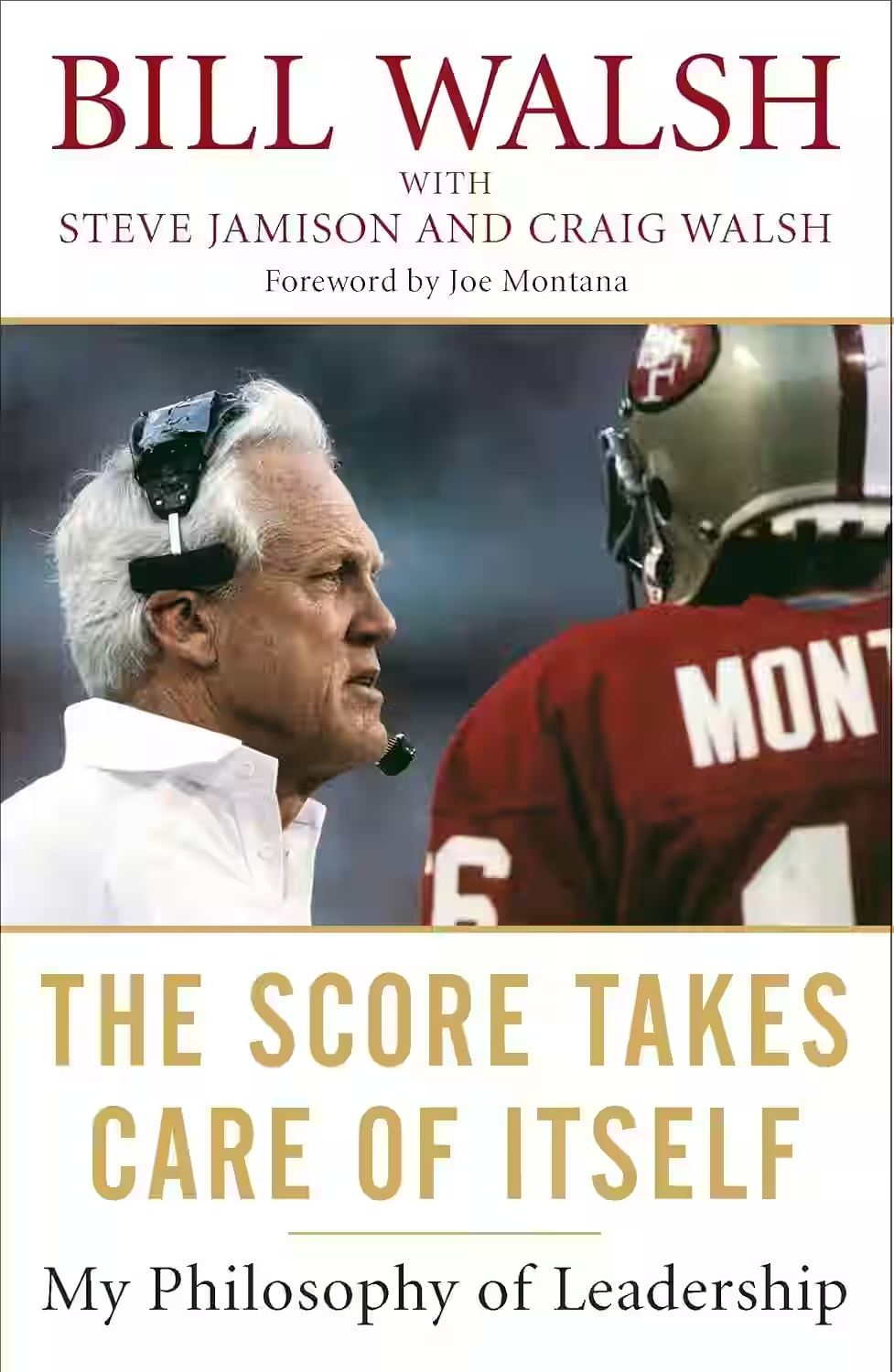
The Score Takes Care of Itself
by Bill Walsh
In this leadership classic, legendary football coach Bill Walsh shares the philosophy that helped transform the struggling San Francisco 49ers into a championship dynasty. His core principle—focus on the process and the score will follow—applies far beyond sports. Walsh emphasizes preparation, discipline, and high personal standards as the foundation of success. The book includes insights from players and staff, as well as personal stories of triumph and setback. It serves as a practical and motivational guide for leaders, coaches, and professionals aiming to build excellence from the ground up, regardless of the field.
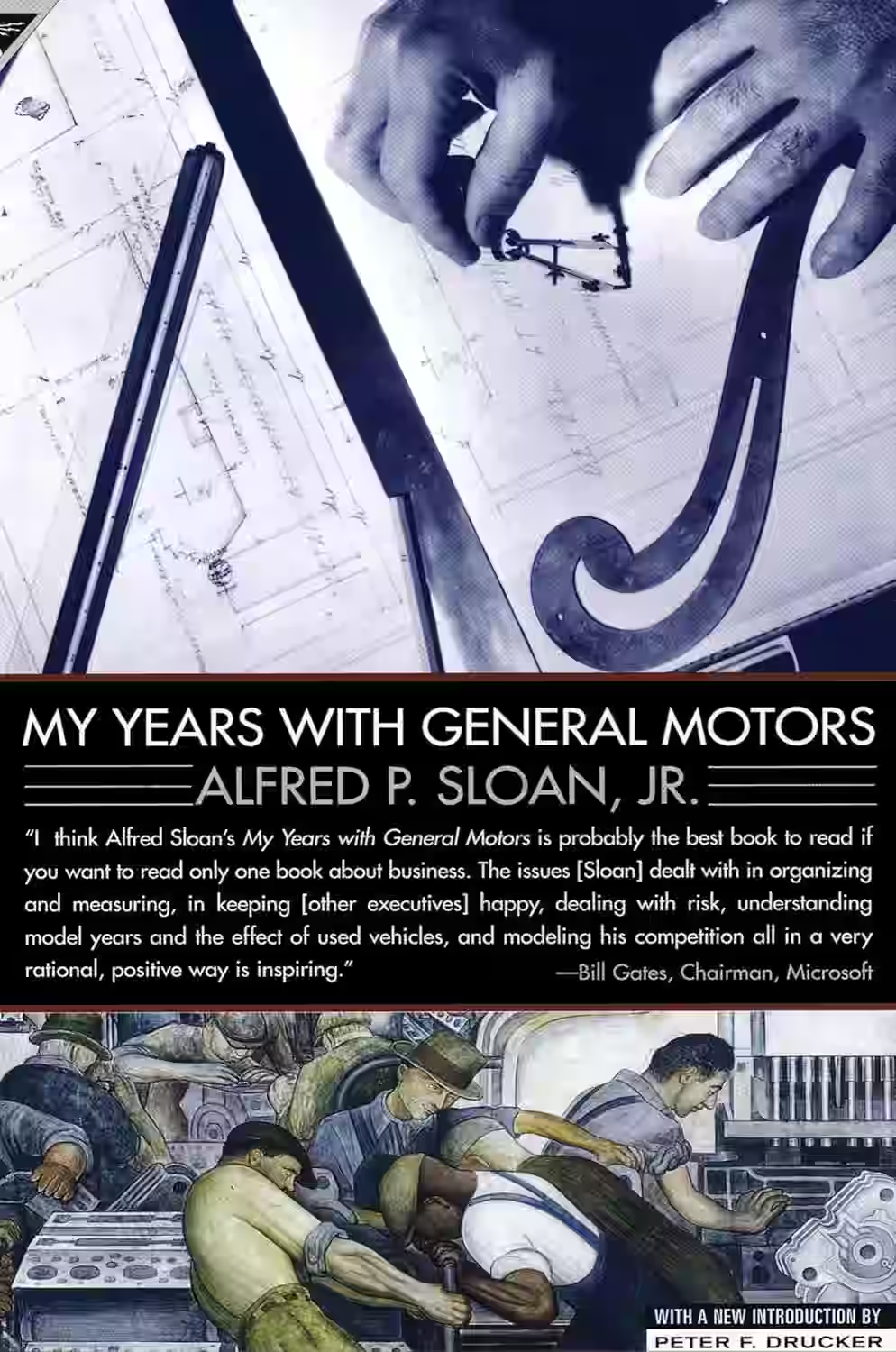
My Years with General Motors
In My Years with General Motors, Alfred P. Sloan recounts his leadership of one of America’s most iconic corporations during its rise to industry dominance. Serving as GM’s president, then chairman, Sloan details how he transformed the company through decentralized management, financial discipline, and strategic innovation. His memoir provides deep insight into corporate governance, organizational structure, and long-term planning. More than a personal narrative, the book is a blueprint for modern business practices and executive leadership. It has been widely studied by business schools and executives, offering timeless lessons on scale, efficiency, and adapting to change in a competitive marketplace.
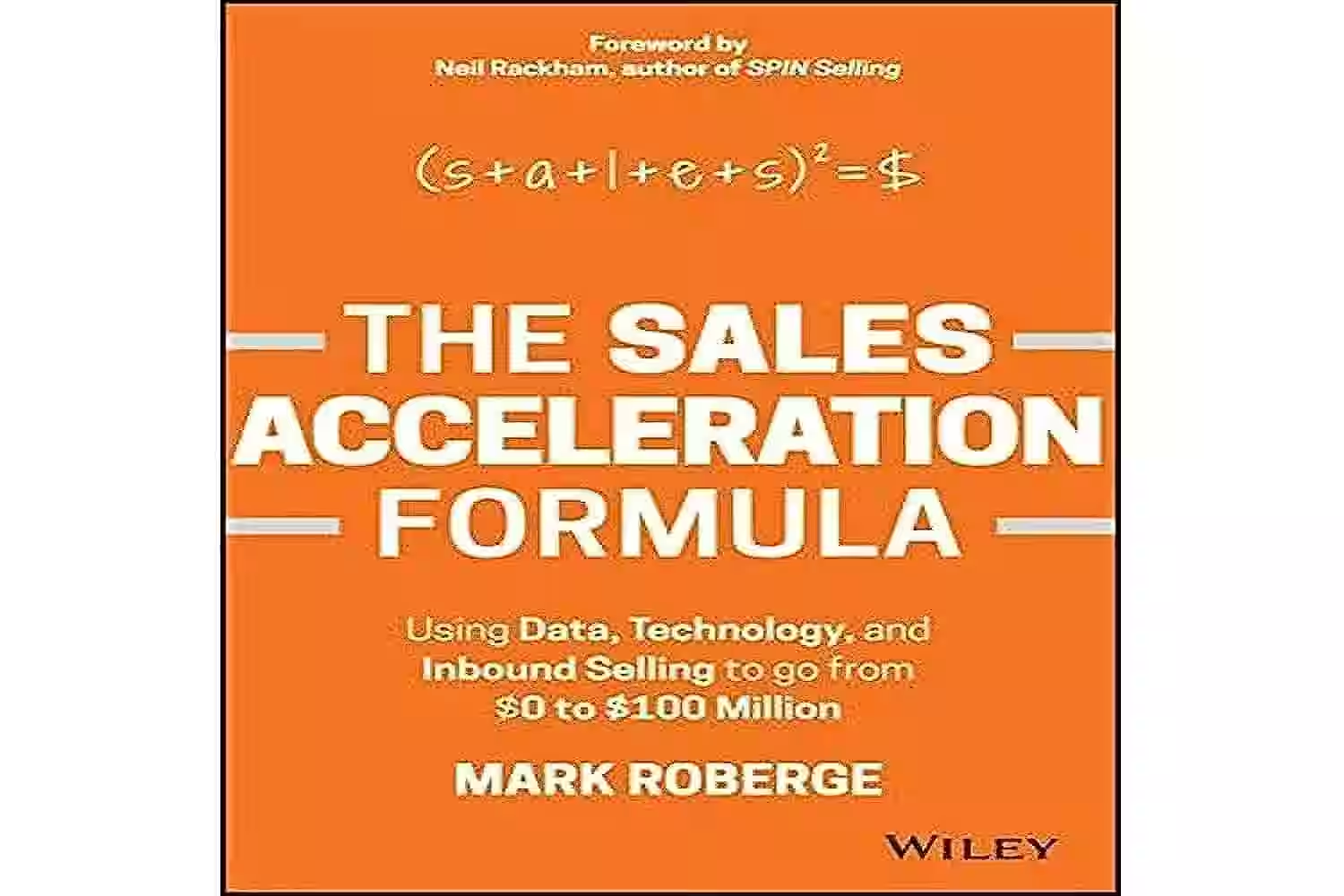
The Sales Acceleration Formula
by Mark Roberge
In 'The Sales Acceleration Formula' by Mark Roberge, readers are taken on a transformative journey through the world of sales strategies and entrepreneurship. Roberge, a former CRO of HubSpot, provides invaluable insights into how data-driven methodologies can revolutionize sales processes. Through real-life examples and actionable advice, he presents a compelling framework for implementing scalable and successful sales practices. From hiring the right talent to leveraging technology effectively, this book covers a wide array of topics essential for sales growth. Roberge's refreshing approach challenges traditional sales tactics and champions a more scientific, analytical approach to driving revenue. 'The Sales Acceleration Formula' is a must-read for anyone looking to revamp their sales tactics and achieve sustainable growth.
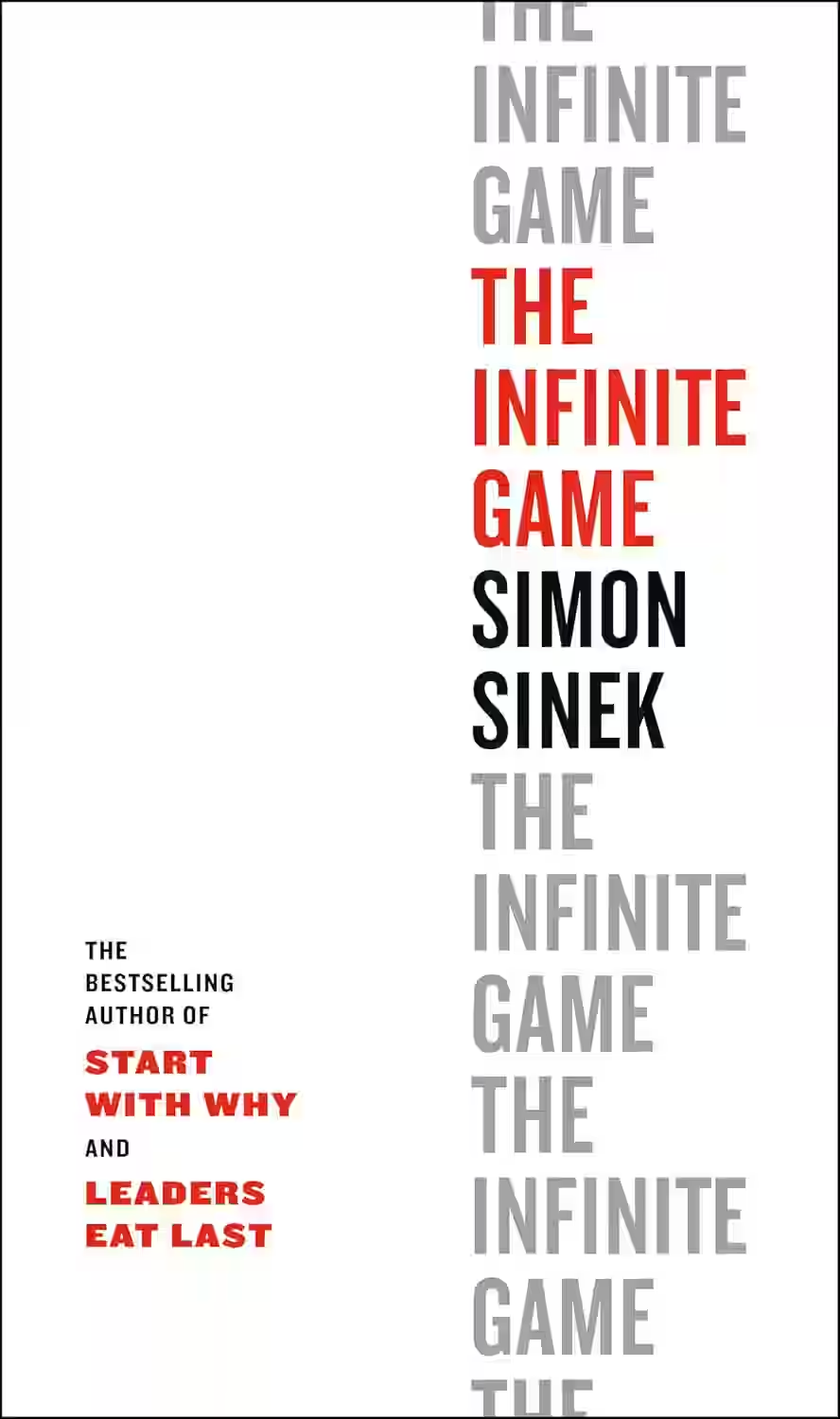
The Infinite Game
by Simon Sinek
In 'The Infinite Game' by Simon Sinek, readers are taken on a transformative journey exploring the concept of viewing life and business as an infinite game rather than a finite one. Sinek argues that in an infinite game, the goal is to outlast and outplay the competition, focusing on long-term sustainability and growth. Drawing from compelling examples, the book delves into leadership principles, organizational culture, and strategic decision-making, urging readers to adopt a more resilient and forward-thinking mindset. Thought-provoking and inspirational, 'The Infinite Game' challenges conventional thinking and offers valuable insights for those looking to thrive in a rapidly changing world.
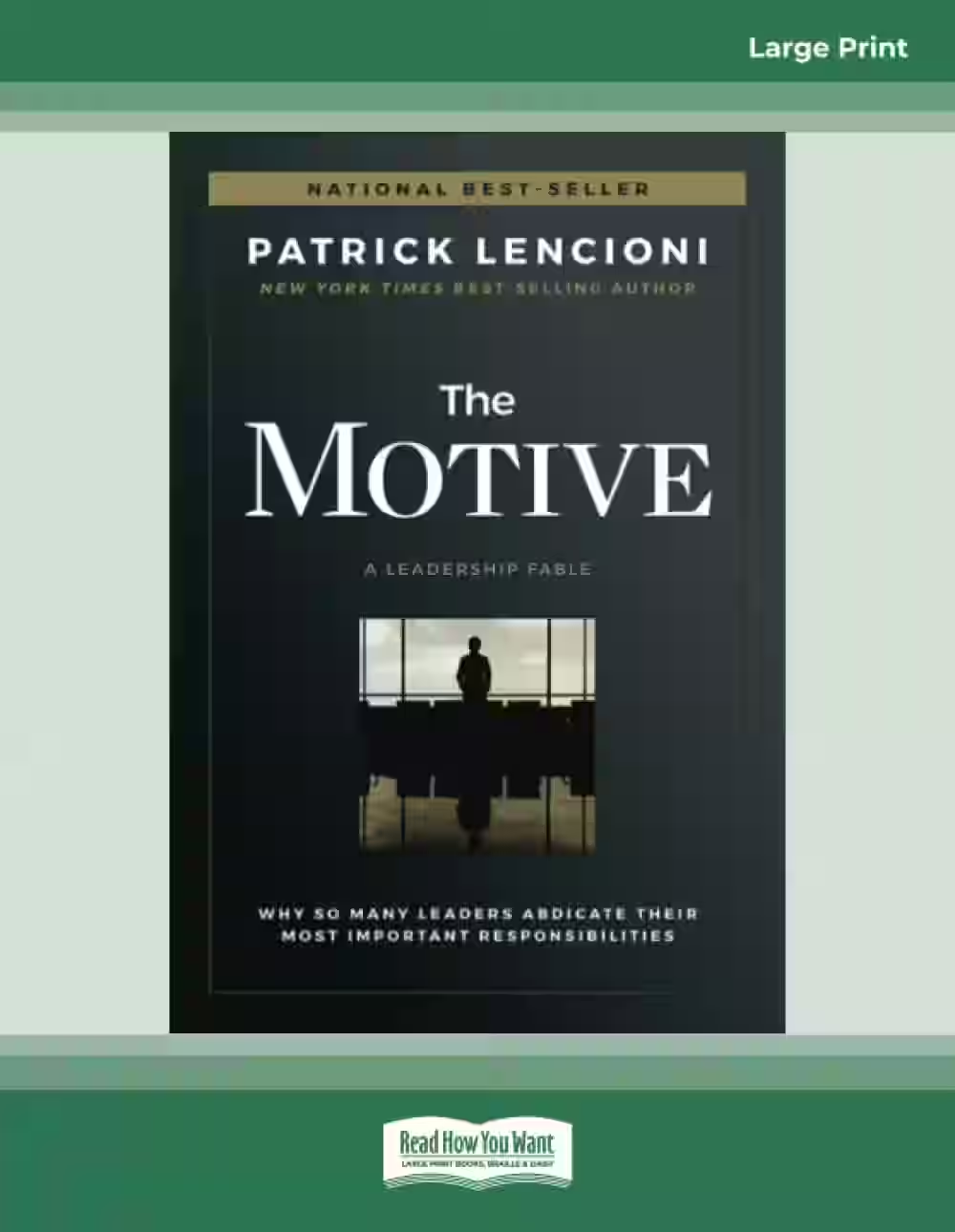
The Motive: Why So Many Leaders Abdicate Their Most Important Responsibilities
In 'The Motive: Why So Many Leaders Abdicate Their Most Important Responsibilities,' Patrick Lencioni delves into the high-stakes world of leadership and explores the reasons behind leaders failing to prioritize their responsibilities effectively. Through a compelling narrative, Lencioni unpacks the true motive that drives leaders, emphasizing the crucial distinction between leading for self-interest and leading for the collective good. With insightful anecdotes and practical advice, the author challenges conventional notions of leadership and prompts readers to reflect on their own motives. This book serves as a wake-up call for leaders at all levels, urging them to reassess their priorities and align their actions with the true essence of leadership.
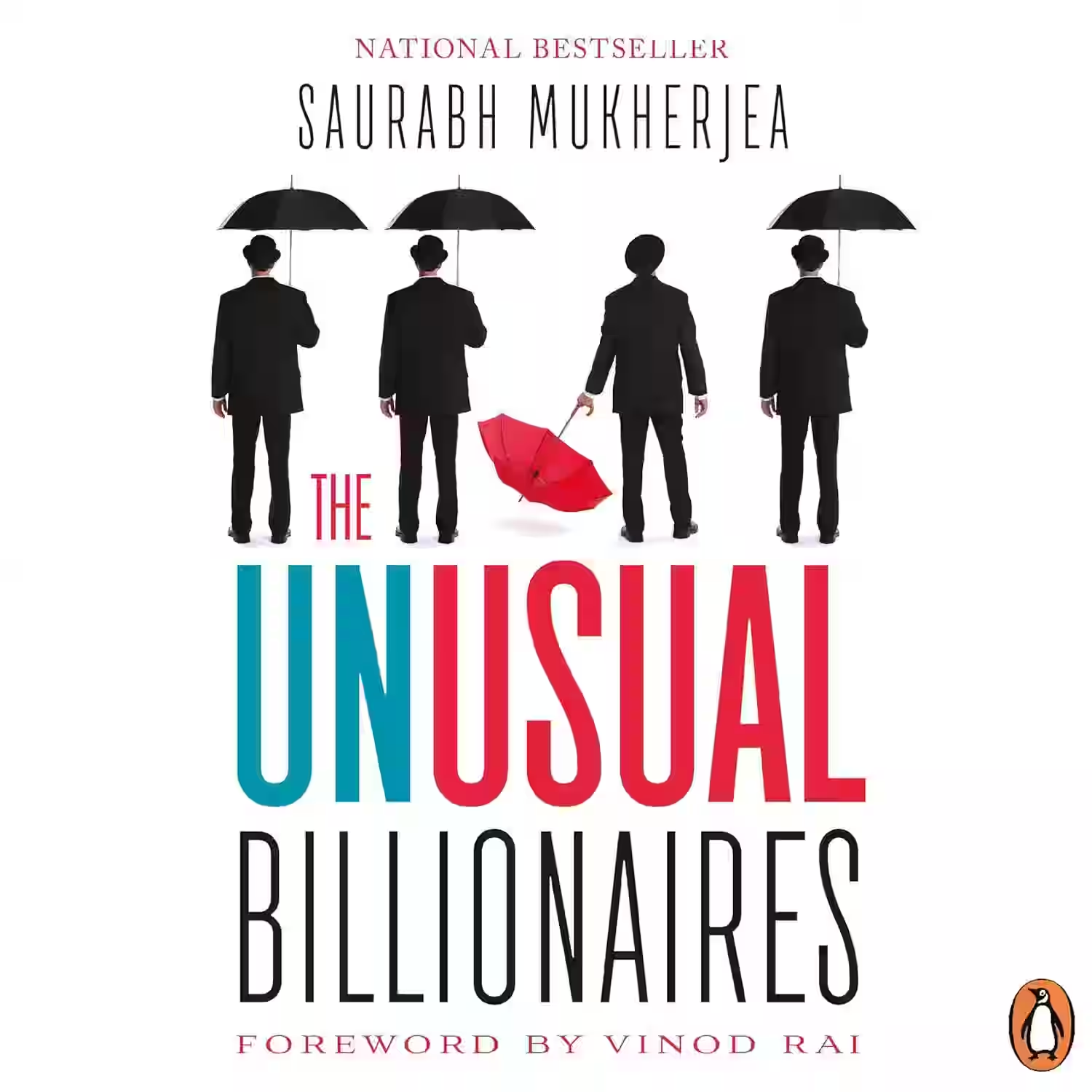
The Unusual Billionaires
In 'The Unusual Billionaires' by Saurabh Mukherjea, readers are taken on a captivating journey into the world of investing through the lens of successful Indian companies. Mukherjea delves deep into the strategies, philosophies, and management styles of these unique billionaires, offering invaluable insights on what sets them apart from the rest. Through meticulous research and analysis, the book uncovers the common traits and practices that have contributed to their extraordinary success, making it a compelling read for both seasoned investors and newcomers to the world of finance. Mukherjea's storytelling and expertise make this book a must-read for anyone looking to understand the secrets behind India's most exceptional business leaders.
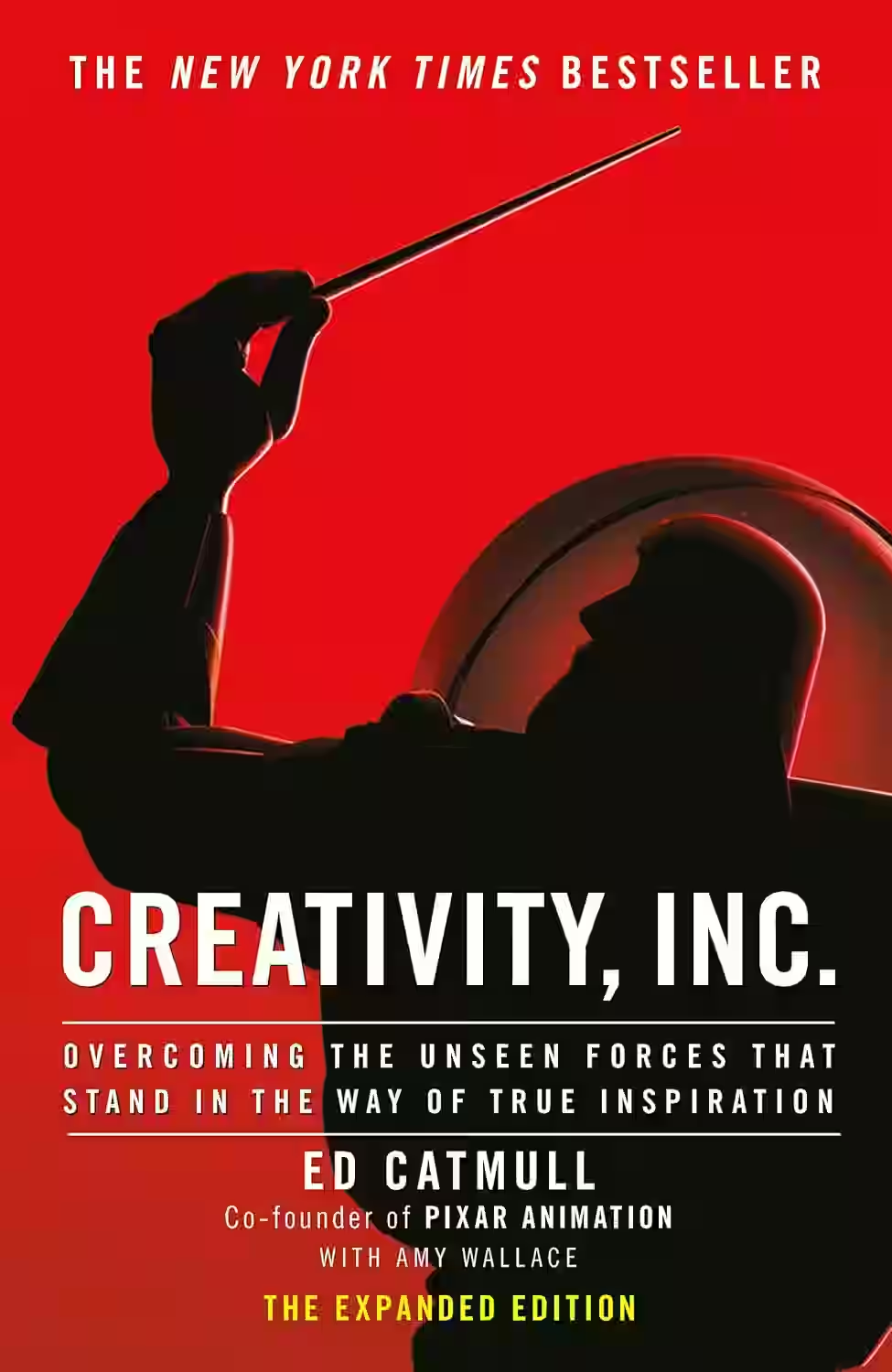
Creativity, Inc.
by Ed Catmull
Ed Catmull, co-founder of Pixar, offers an insider’s guide to building a creative culture. Through stories from the making of beloved films like Toy Story and Finding Nemo, Catmull reveals how Pixar nurtures innovation while maintaining excellence. He discusses leadership, collaboration, and the importance of candor in creative work. Central to the book is the idea that protecting creativity requires careful management of failure and feedback. Creativity, Inc. is not just a memoir—it’s a manual for leading with purpose, whether you’re in animation, tech, or any field requiring bold ideas and inventive teams.
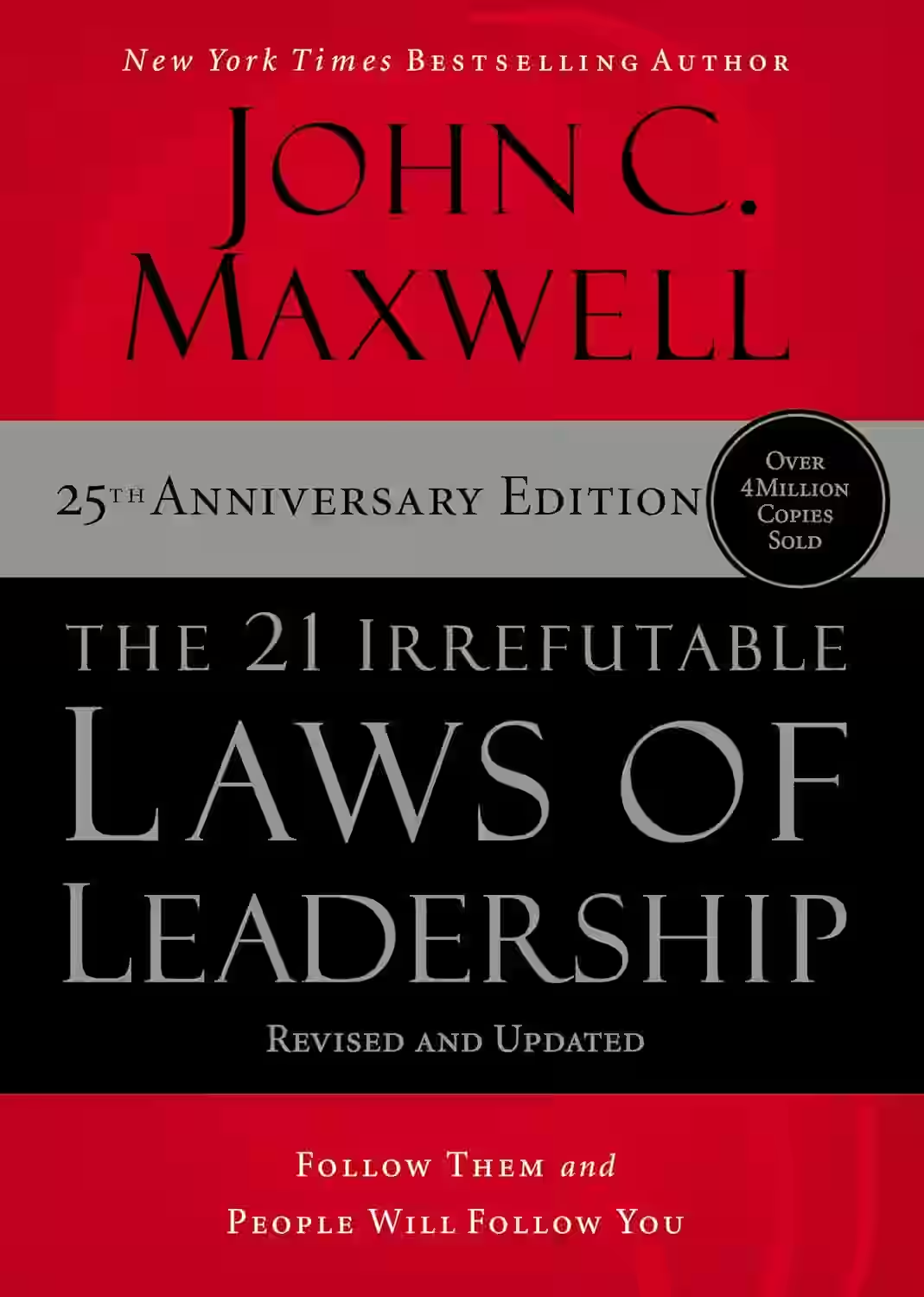
The 21 Irrefutable Laws of Leadership
In 'The 21 Irrefutable Laws of Leadership' by John C. Maxwell, readers are taken on a transformative journey through the fundamental principles that govern effective leadership. Maxwell, a renowned leadership expert, eloquently presents 21 laws that are essential for anyone looking to enhance their leadership skills and influence. Each law is illustrated with insightful anecdotes, real-world examples, and practical tips that readers can apply in their own lives and organizations. From 'The Law of Influence' to 'The Law of Navigation,' this book offers a roadmap for aspiring and seasoned leaders alike to reach their full potential. Through engaging storytelling and expert guidance, Maxwell equips readers with the tools they need to become successful and respected leaders.
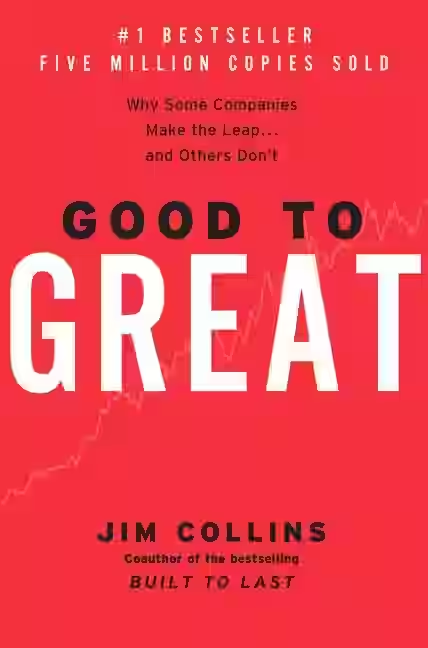
Good to Great
by Jim Collins
In Good to Great, Jim Collins investigates why some companies make the leap from being merely good to truly great—and sustain that performance. Based on extensive data analysis and case studies, Collins identifies key factors behind this transformation, including disciplined people, thought, and action. Central concepts include the Hedgehog Concept, Level 5 Leadership, and the Flywheel Effect. The book argues that greatness comes from building a culture of excellence, facing brutal facts, and staying focused on long-term goals. Insightful and accessible, Good to Great is widely considered essential reading for leaders aiming to build high-performing, resilient organizations.
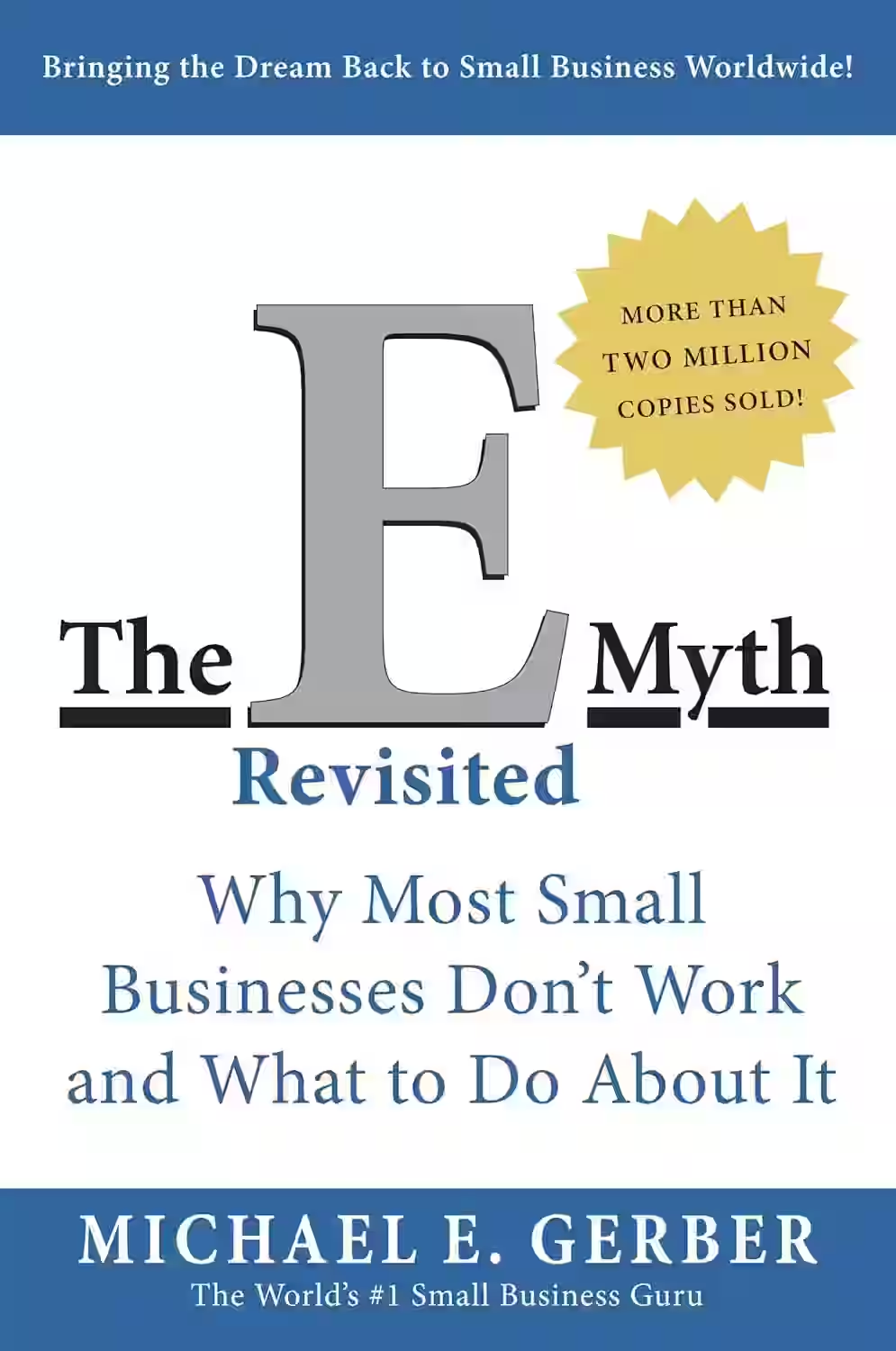
The E-Myth Revisited
The E-Myth Revisited challenges the assumption that most small businesses are started by entrepreneurs. Michael E. Gerber argues that many founders are actually “technicians” who struggle with running a business. The book offers a clear framework for building a business that can scale and function independently of the owner. Gerber emphasizes the importance of systems, standardization, and working “on” the business rather than just “in” it. Through the fictional story of a struggling bakery owner, he illustrates common pitfalls and provides actionable solutions. This book is a foundational read for anyone seeking to grow a sustainable, replicable business.
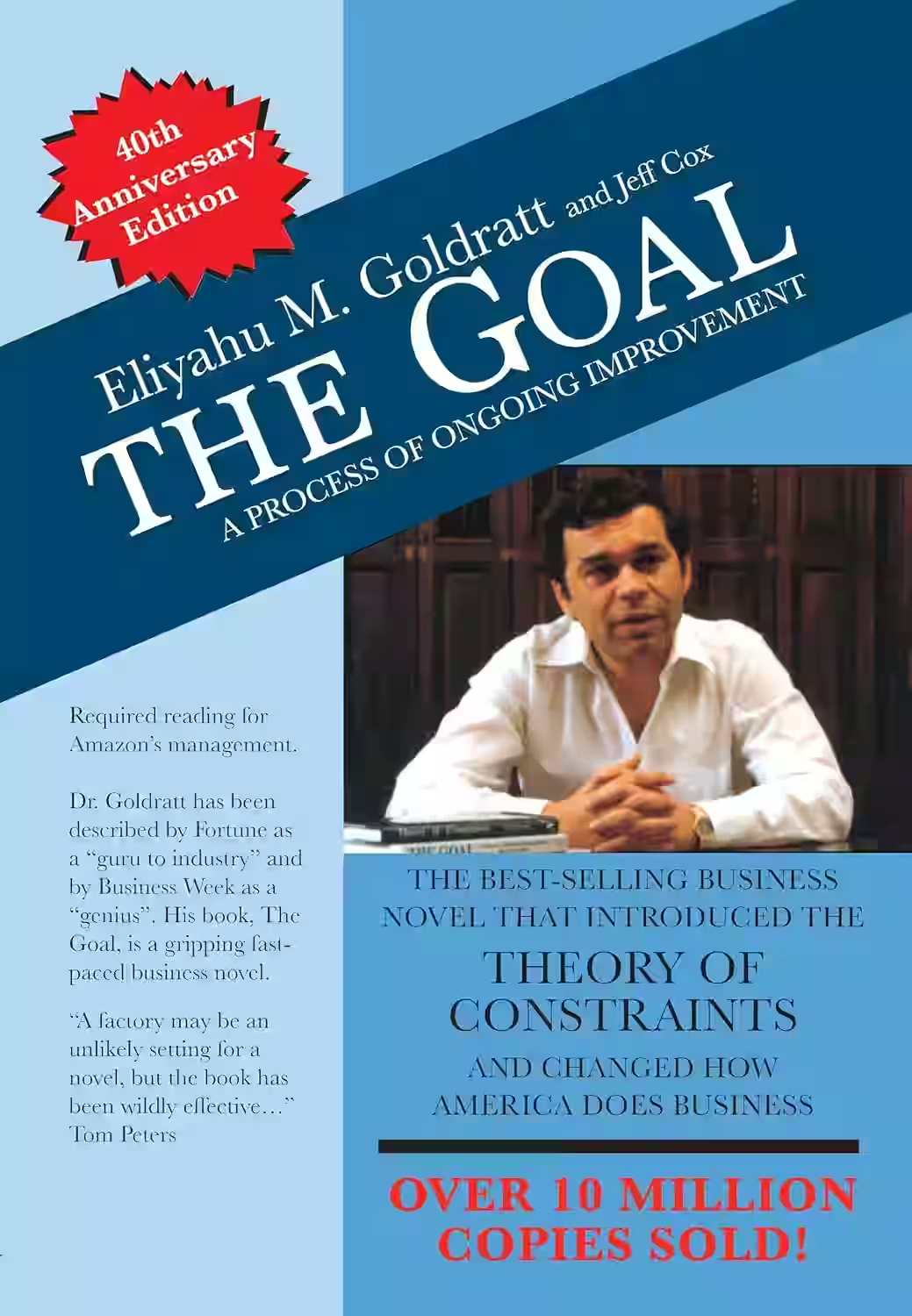
The Goal
Written in a fast-paced thriller style, The Goal is the gripping novel which is transforming management thinking throughout the Western world. Alex Rogo is a harried plant manager working ever more desperately to try and improve performance. His factory is rapidly heading for disaster. So is his marriage. He has ninety days to save his plant—or it will be closed by corporate HQ, with hundreds of job losses. It takes a chance meeting with a colleague from student days—Jonah—to help him break out of conventional ways of thinking to see what needs to be done. The story of Alex's fight to save his plant is more than compulsive reading. It contains a serious message for all managers in industry and explains the ideas which underline the Theory of Constraints (TOC) developed by Eli Goldratt.
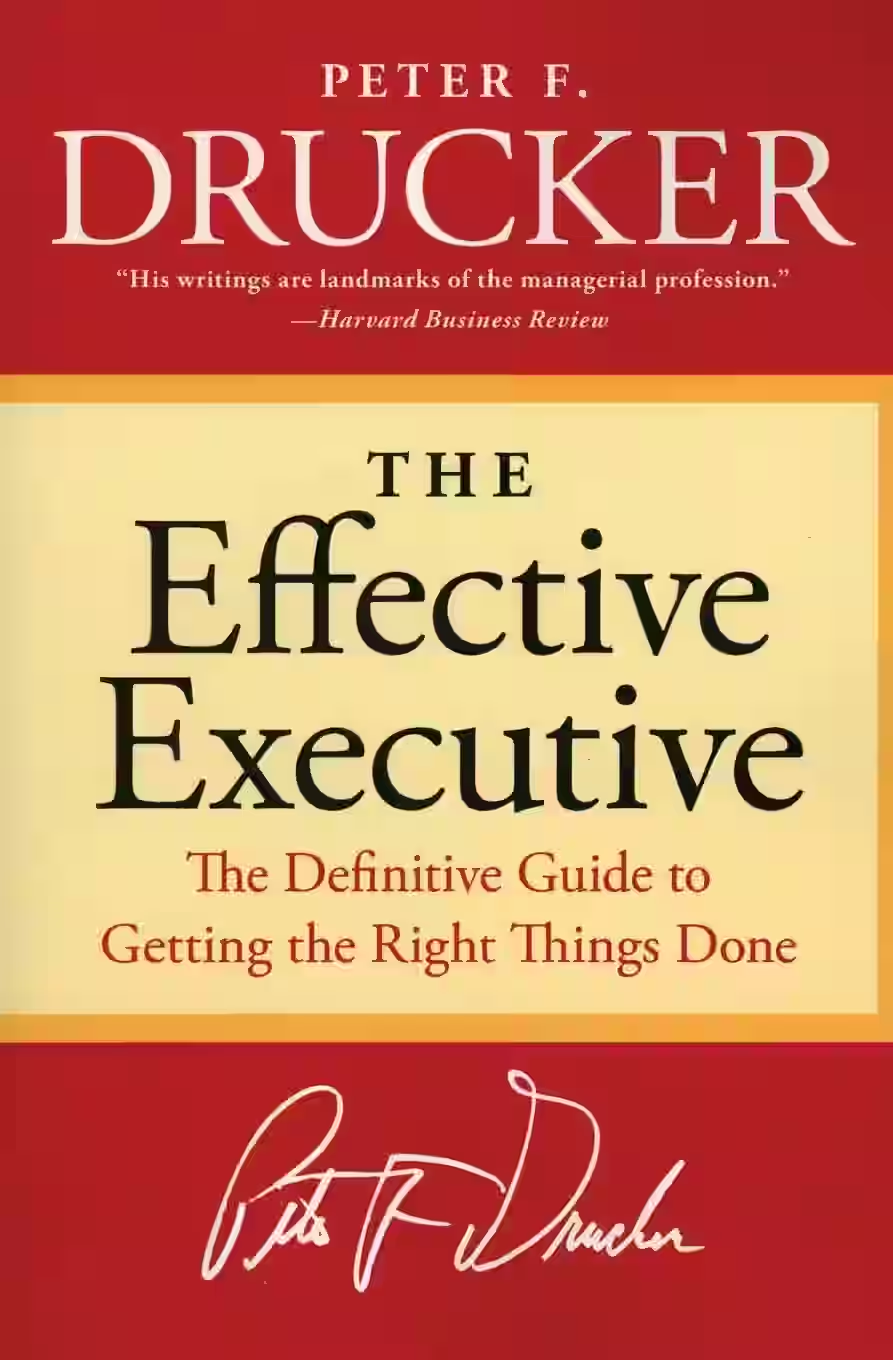
The Effective Executive
In The Effective Executive, Peter Drucker outlines the essential practices that make executives—and knowledge workers—more productive and impactful. Rather than focusing on charisma or innate talent, Drucker emphasizes disciplined time management, clear priorities, effective decision-making, and results-driven action. He argues that effectiveness is a skill that can be cultivated through habits such as knowing where time goes, focusing on contribution, and concentrating on a few key tasks. Written with clarity and timeless wisdom, this concise book remains a cornerstone of leadership and management literature, offering practical insights for professionals aiming to lead with focus, intention, and strategic purpose.
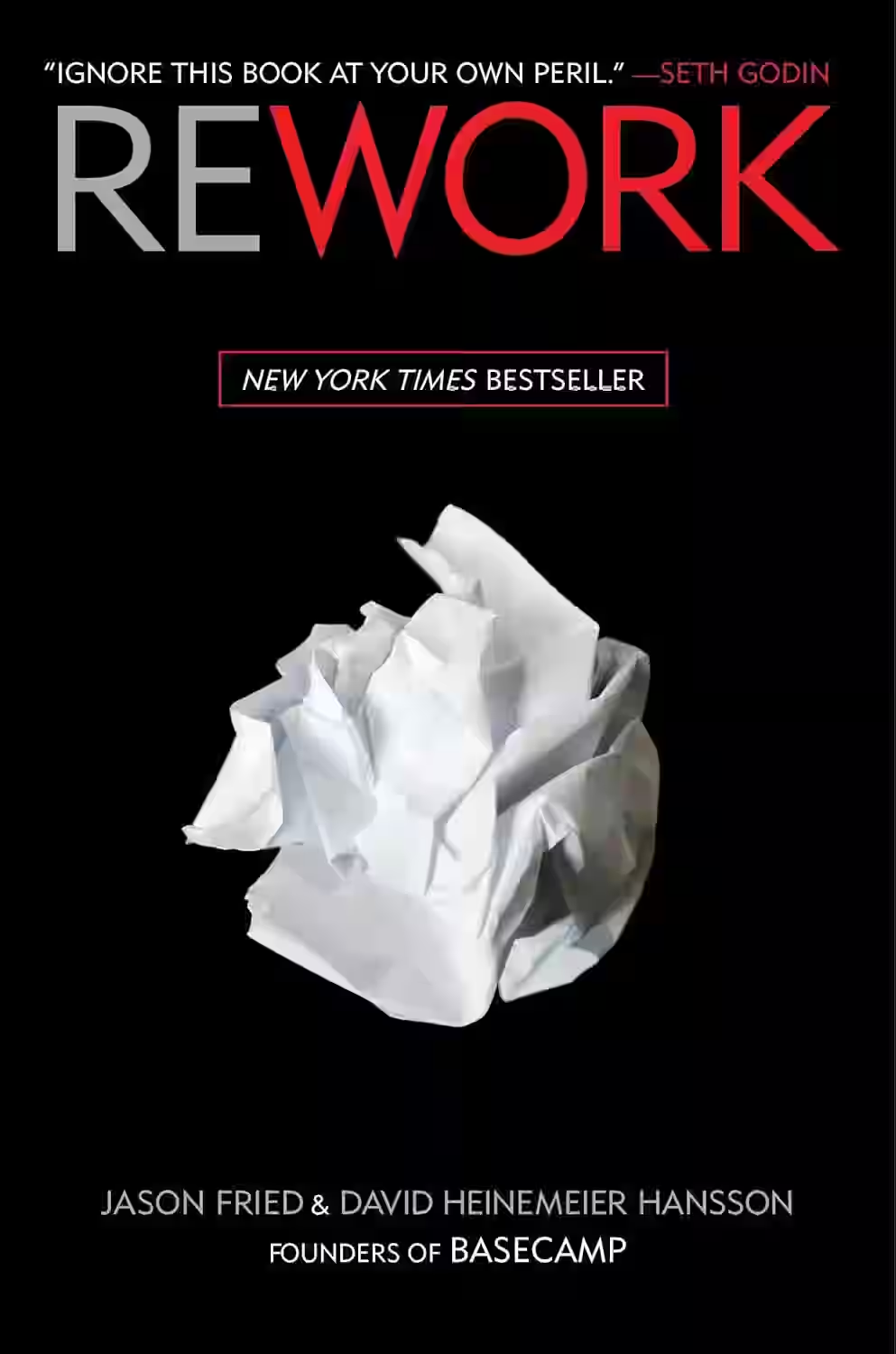
Rework
by Jason Fried, David Heinemeier Hansson
Rework is a no-nonsense guide to building and running a business differently—smarter, leaner, and with less bureaucracy. Written by the founders of Basecamp, the book dismantles traditional startup myths and offers fresh advice on productivity, marketing, hiring, and growth. Each chapter is short and punchy, advocating for simplicity, speed, and authenticity. Rework encourages readers to launch quickly, ignore competitors, and focus on real value rather than business plans or investor pitches. Whether you're an entrepreneur, freelancer, or team leader, this book provides a practical, counterintuitive perspective on what really matters when creating something meaningful.
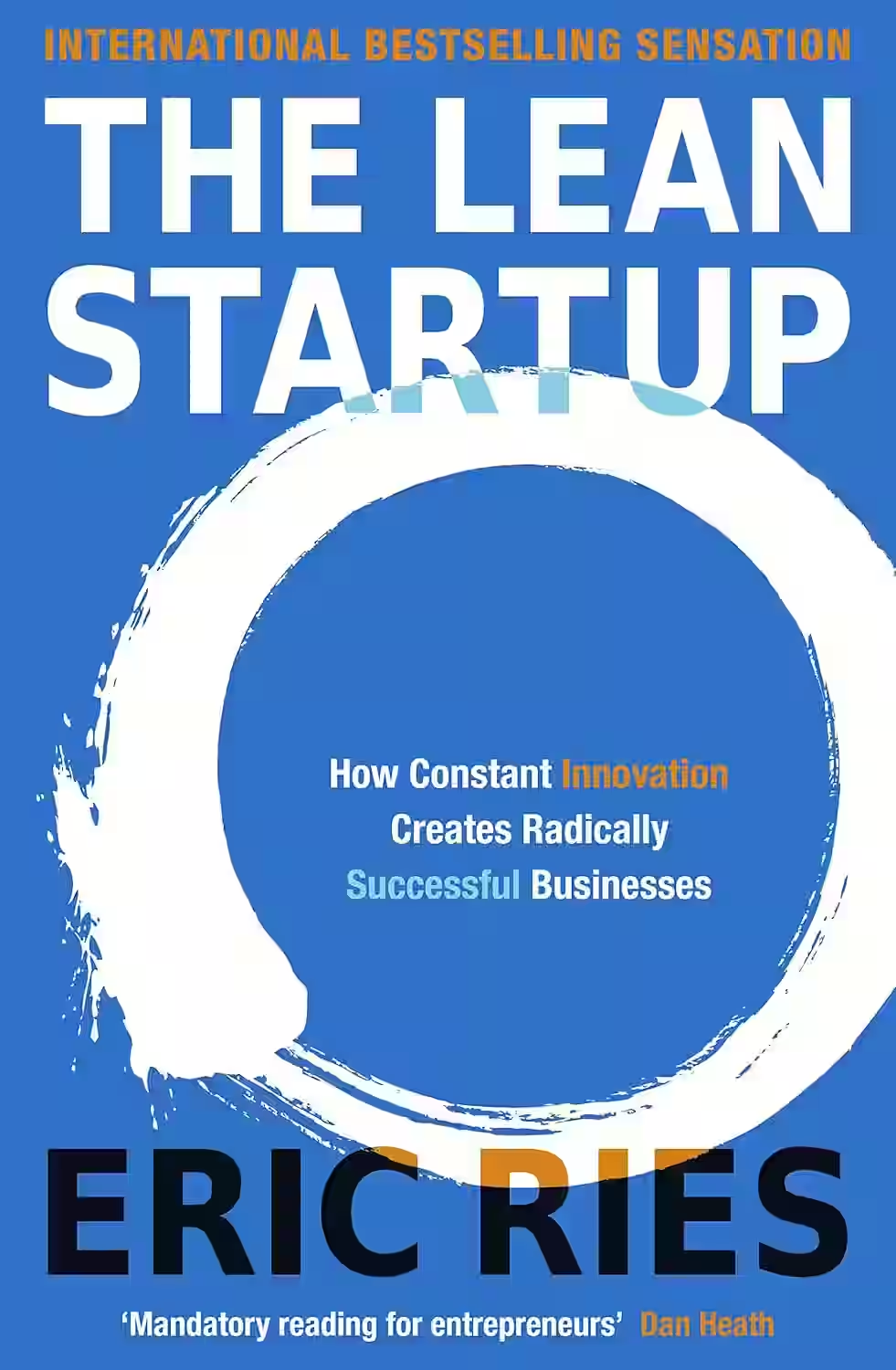
The Lean Startup
by Eric Ries
The Lean Startup presents a framework for building startups through continuous innovation, rapid experimentation, and customer feedback. Eric Ries introduces concepts like the Build-Measure-Learn loop, minimum viable product (MVP), and validated learning to help entrepreneurs reduce waste and improve decision-making. Rather than perfecting a product before launch, Ries advocates iterative development and pivoting based on real-world data. This approach enables startups to adapt quickly and succeed in uncertain markets. With practical tools and real examples, The Lean Startup has become a foundational guide for modern entrepreneurship, influencing startups, tech companies, and corporate innovation programs around the world.
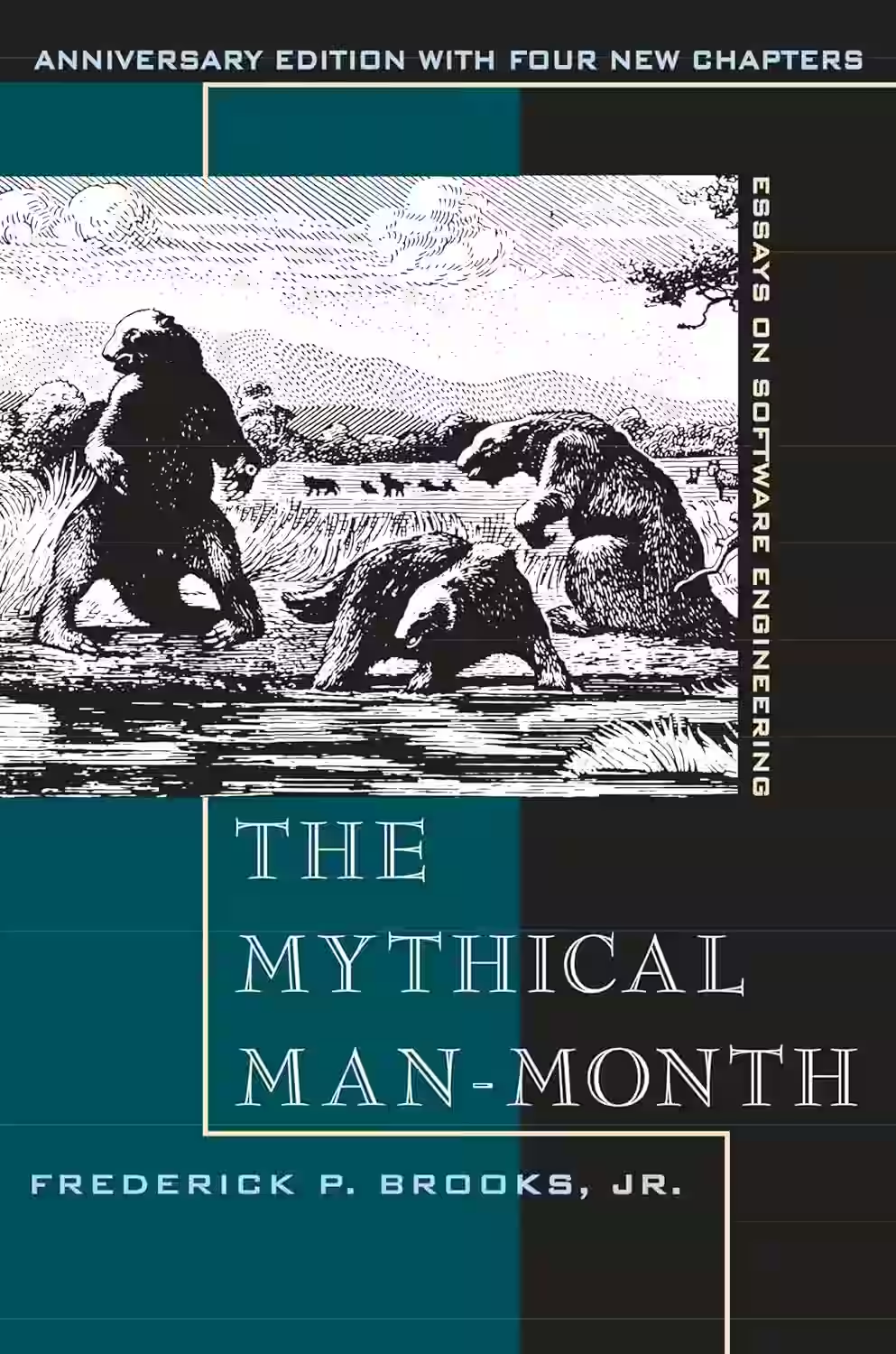
The Mythical Man-Month
by Steve Grand
The Mythical Man-Month is a classic exploration of software engineering, project management, and the pitfalls of large-scale development. Frederick P. Brooks, who managed IBM’s System/360 project, famously argues that adding manpower to a late project often delays it further. He introduces key concepts like “Brooks’s Law,” the importance of conceptual integrity, and the difficulty of coordinating large teams. Blending essays and insights from real-world experience, the book highlights the human and organizational challenges of building complex systems. Despite its original publication in the 1970s, The Mythical Man-Month remains widely read for its enduring wisdom in managing creative, technical work
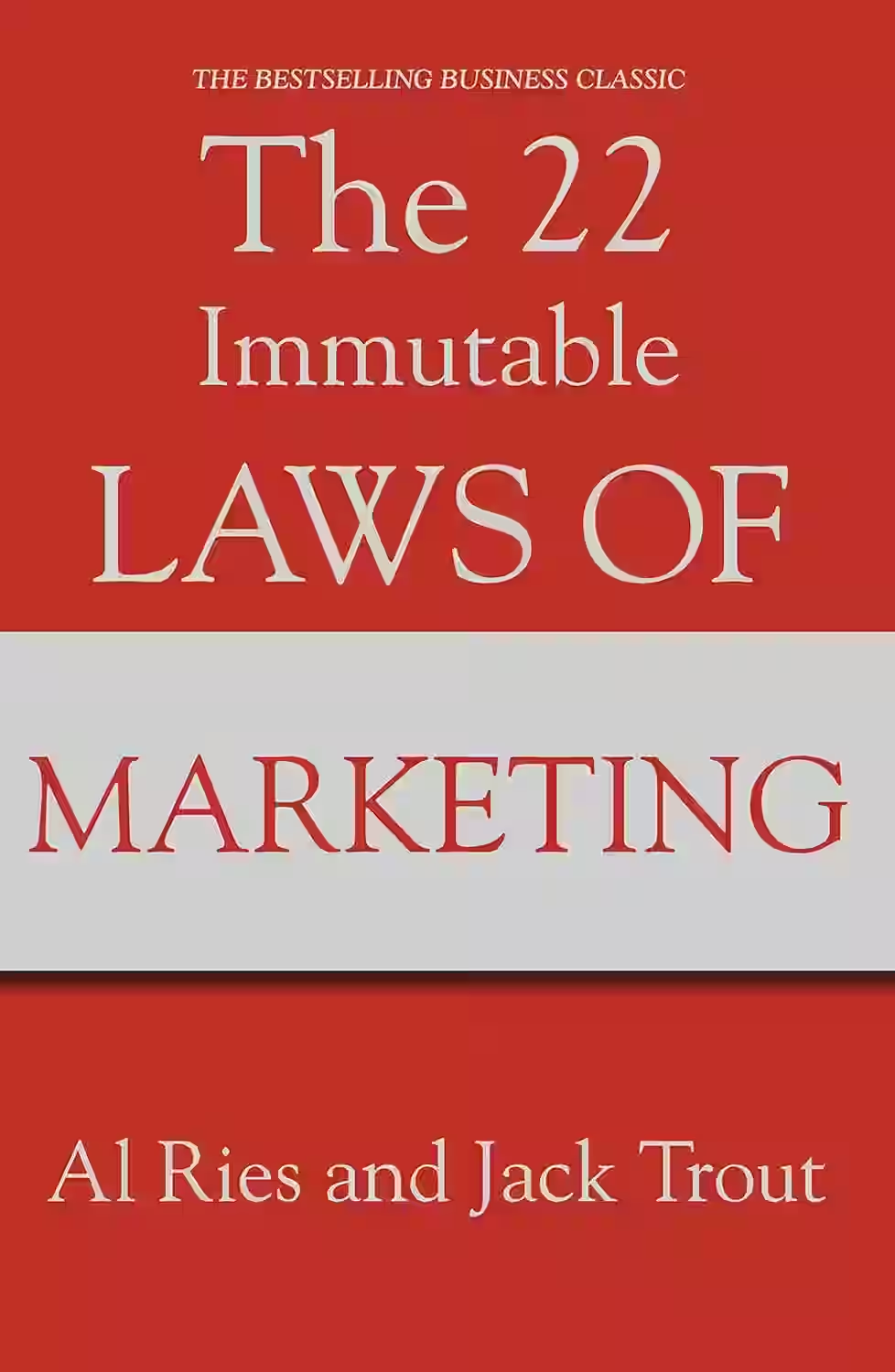
The 22 Immutable Laws of Marketing
by Al Ries, Jack Trout
This marketing classic distills decades of experience into 22 concise rules for building and maintaining strong brands. Al Ries and Jack Trout argue that marketing success comes from perception, not product, and each “law” illustrates a key principle—such as the Law of Leadership, the Law of the Category, and the Law of Focus. The book warns against common marketing pitfalls and emphasizes clarity, consistency, and positioning. Though first published in the 1990s, its ideas remain highly relevant in a crowded, fast-moving marketplace. It’s a sharp, digestible guide for marketers, entrepreneurs, and business owners seeking long-term strategic advantage.

Good Work
by Paul Millard
Paul Millerd's Good Work challenges our conventional understanding of work, asking if it can be a source of profound aliveness. Through personal stories, Millerd recounts his journey from chasing ideal jobs to seeking escape, culminating in a pivotal question: what if work doesn't have to be dissatisfying? This isn't about corporate success or relentless hustle, but about questioning work's role in a fulfilling life. Millerd explores embracing uncertainty, finding new motivations, prioritizing family, and discerning truly ambitious paths, offering companionship for those seeking a more meaningful way to work and live.
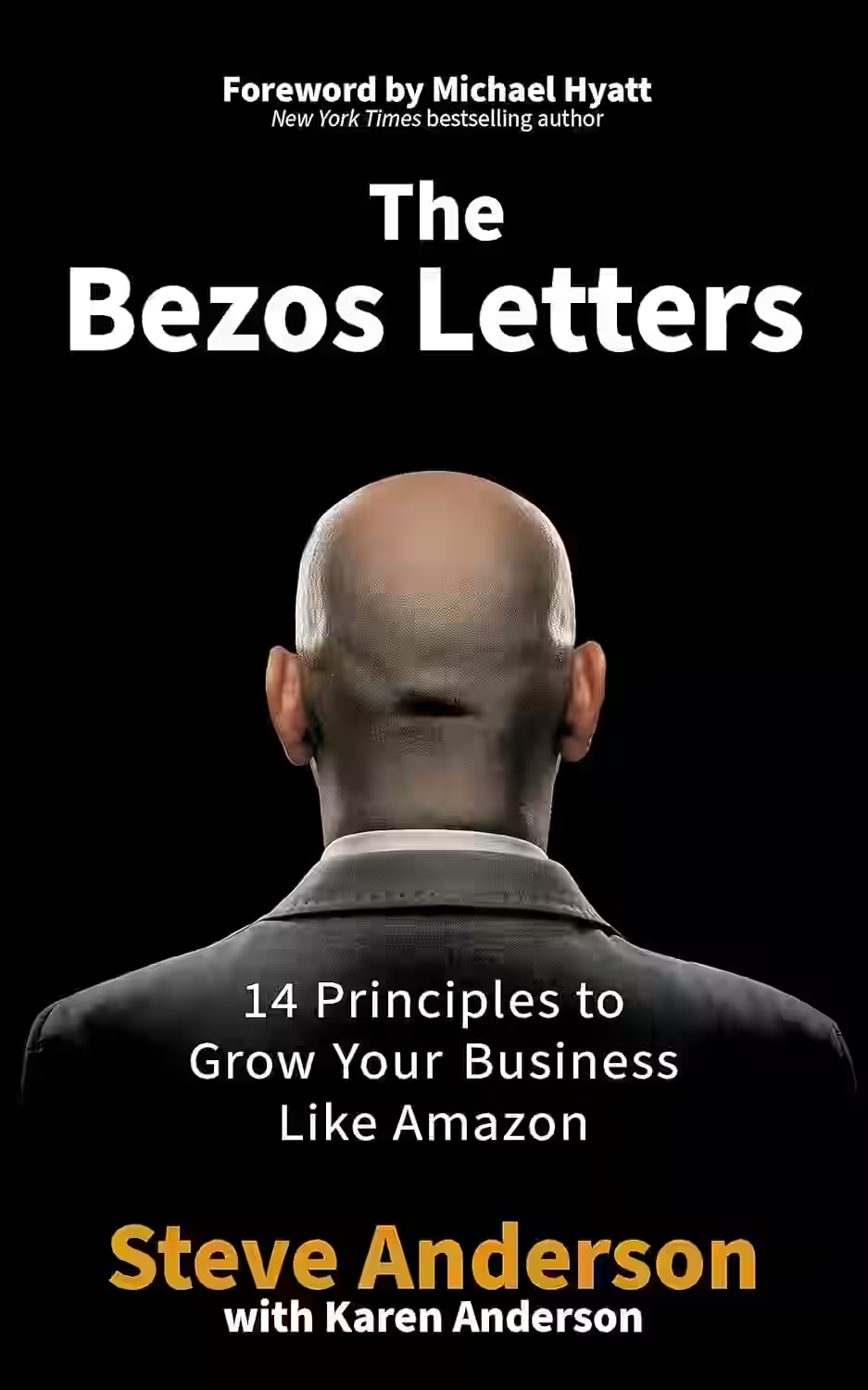
The Bezos Letters: 14 Principles to Grow Your Business Like Amazon
In 'The Bezos Letters: 14 Principles to Grow Your Business Like Amazon' by Steve Anderson, readers delve into the core principles that propelled Amazon to incredible success. The book breaks down Jeff Bezos' annual letters to shareholders over the years, revealing essential business strategies such as customer obsession, embracing failure, and long-term thinking. Anderson expertly distills these principles, providing valuable insights and actionable advice for entrepreneurs and business leaders looking to emulate Amazon's achievements. Through a combination of analysis and real-world examples, this book offers a compelling roadmap for growth and innovation in today's competitive market.
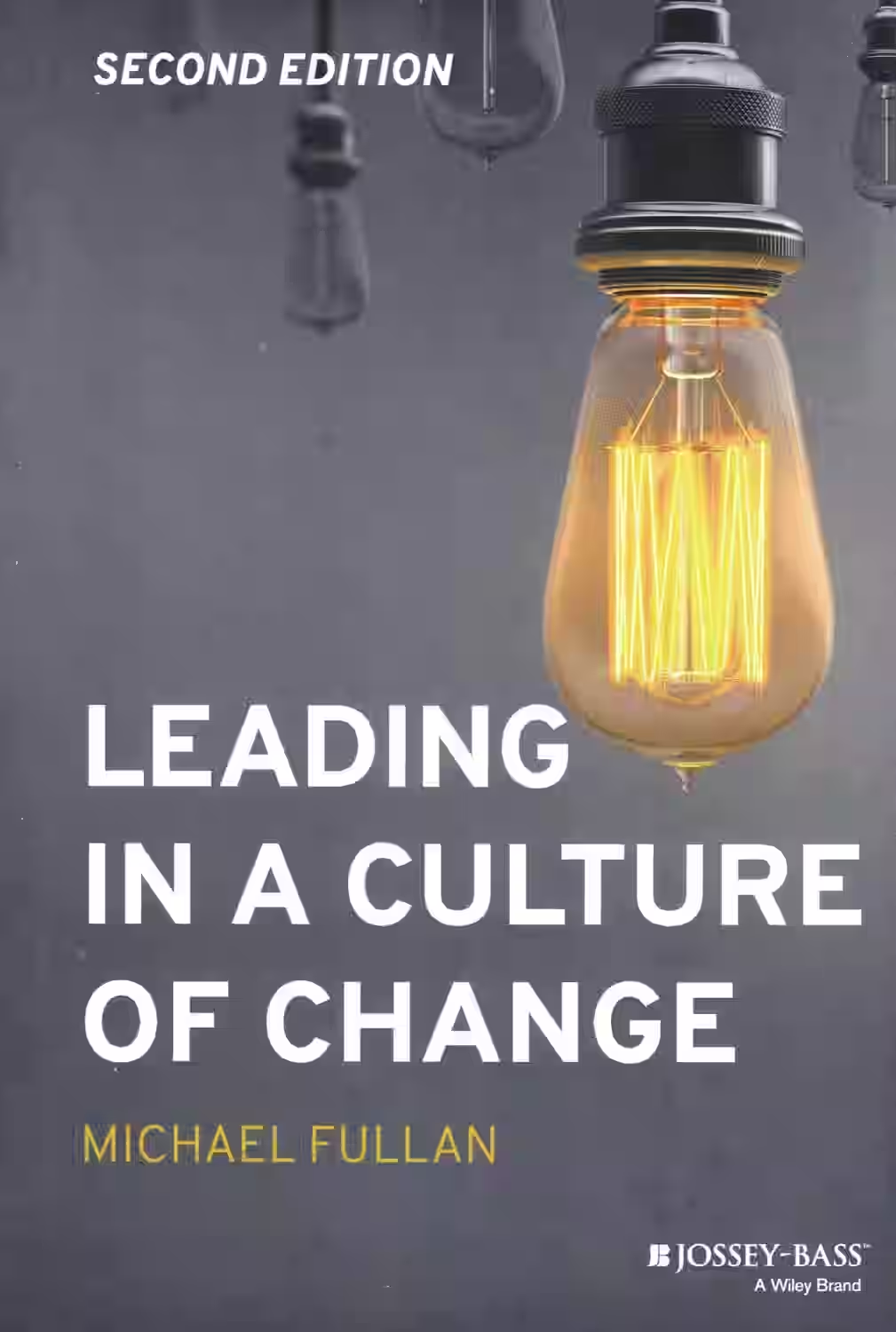
Leading in a Culture of Change
In 'Leading in a Culture of Change' by Michael Fullan, readers are taken on a transformative journey into the world of organizational leadership, particularly within the context of change management. Fullan delves deep into the complexities of leading amidst rapid shifts and advocates for a holistic approach that encompasses collaboration, trust-building, and adaptability. Through engaging narratives, case studies, and practical strategies, Fullan inspires leaders to embrace change as an opportunity for growth rather than a hurdle. This book serves as a guiding light for those navigating the ever-evolving landscape of leadership in the 21st century.